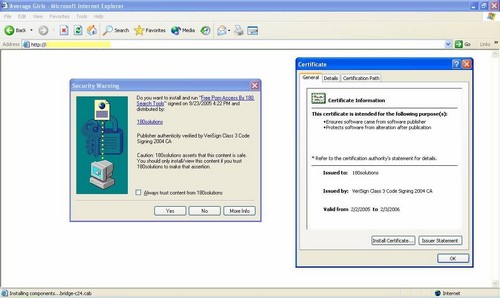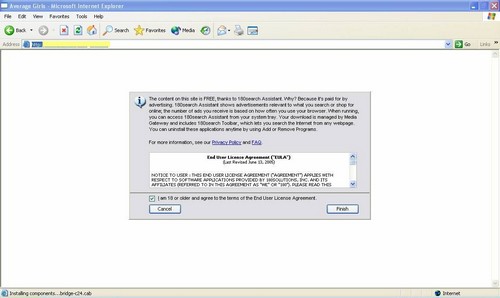HD DVD or Blue-ray?
It’s great to have choices, but not so great when you want to adopt a new technology now, but you have to pick between competing, incompatible versions of it – and you know it’s likely that only one of those versions will survive. Do you invest your money and time into one or the other, or does it make more sense to wait around until the technologies battle it out to see who the winner is before you buy?
For those of us old enough to have been around for the VCR wars, it’s a familiar situation. The ability to record TV shows and buy prerecorded movies was a fantastic thing, but if you were going to be the first on the block to buy a shiny new VCR, you had to first agonize over the decision: which format should you support, VHS or Betamax?
To many, the choice seemed like a no-brainer. Betamax, developed by Sony and introduced in 1975, had a number of other electronics vendors behind it: Toshiba, Sanyo, Pioneer, NEC, Aiwa and the venerable Zenith. But more importantly, the video quality was noticeably better than that of JVC’s VHS format, and the cassettes were smaller and more compact.
Unfortunately, those who bet on the higher quality option found themselves on the losing side. Matsushita/Panasonic, Hitachi, Mitsubishi, Sharp and Akai supported VHS, and by the late 1980s, Betamax was little more than a memory. Of course, if you did buy a Betamax machine and held onto it, you may have found yourself with a collector’s item eagerly sought after by members of the small but loyal cult following that grew around the Betamax.
Today, VCRs themselves are becoming obsolete, replaced by DVD players. Until now, we’ve avoided a similar situation with prerecorded digital discs (although not with recordable and rewritable CDs and DVDs, where a confusing plethora of formats still compete). That’s because two technologies called MultiMedia Computer Disc and Super Density Disc, developed by Sony and Toshiba, respectively, were combined to create the current DVD standard before either ever came to market.
As high definition programming starts to finally come into its own, it appears that we’re set for yet another format war over high capacity high def DVD. The first high definition players are expected to hit the market in 2006.
The two competing standards are HD DVD, supported by Microsoft, Intel, Universal Studios and Warner Bros, and Blu-ray, supported by Apple, HP, Dell, Sony, Paramount Pictures, Disney, Twentieth Century Fox and Warner Bros. (who is apparently determined to back the winner one way or another).
The new DVD formats provided for storing much larger files than current DVDs: up to 50 GB per double layered disc (today’s DVDs hold 4.7 GB). That kind of capacity is necessary for high quality, high definition video. Both use blue lasers (hence the name Blu-ray), instead of the red lasers used for current DVD players. The shorter wavelength of the blue laser lets you write the information to the disc more densely.
So what’s the difference? Well, first of all, Blu-ray theoretically has the highest capacity: 50 GB vs. HD DVD’s 30 GB. How much does that matter? Some folks think one big reason VHS won the VCR war was because its recording capacity of up to six hours was greater than the Betamax’s 60 minutes. However, Blu-ray’s higher capacity discs cost more, and many also think VHS won over Betamax because it was less expensive. And to complicate matters more, Toshiba has create a prototype of a triple density HD DVD disc that can hold 45 GB. Finally, HD DVD supports a feature that lets consumers make legal copies of their DVD movies to their computers’ hard disks. Although some of Blu-ray’s supporters, most noteably Hewlett-Packard, are pushing to get this feature included, at present Blu-ray doesn’t have it.
Even though they both use the same type of laser, the thickness of the surface layers and the pitch of the tracks on the discs are different, which means you can’t play a Blu-ray disc in an HD DVD player and vice versa.
The two sides had been in talks to try to work out a compromise, as was done with the original DVD standard, but those negotiations broke down last summer and Sony (which proposed the possible merger earlier this year) announced that the formats would not be coming together. How about a player that will play both disc types? Experts say that would be cost-prohibitive. Thus both sides will be trying hard to convince consumers that their product is the DVD format of the future.
HD DVD is expected to be first to market. The HD DVD discs can be made with the same equipment used for current DVDs, but duplication of Blu-ray discs requires a different manufacturing process and equipment would have to be retooled. That means HD DVD may have an advantage, at least at first, in the number of titles available in their format.
The good news is that both types of new DVD players are expected to be backward-compatible with today’s DVDs even if they aren’t compatible with each other; the new machines will include both the blue laser and a red laser for reading the older discs.
What do you think? Should the factions try harder to create a single standard, merged technology or is competition good because it’ll drive prices down? Are you more inclined to wait around to see who emerges the winner or will you run out and buy a new high capacity player as soon as your budget allows? Which do you care about most: slightly higher capacity or more available content? If one technology allows you to copy the movies you buy to your computer and the other doesn’t, would that influence your choice? Or do you not give a darn about high definition video at all, and plan to stick with your regular DVD player as long as possible?
Deb Shinder








